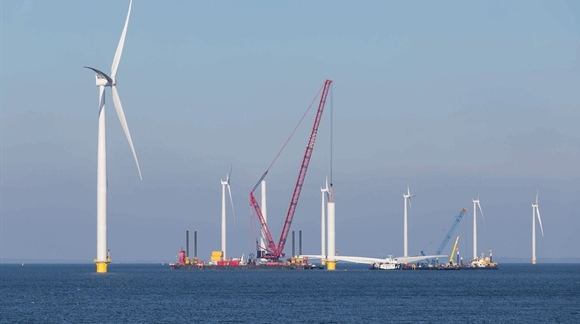
The European Commission has approved a French state aid scheme offering EUR 10.82 billion ($11.7 billion) for two planned offshore wind projects with a combined expected capacity of 2,800 megawatts (MW).
One of the bottom-fixed farms is proposed to be built in the Atlantic with a capacity of 1,000–1,200 MW to generate at least 3.9 terawatt hours (tWh) of power a year. The other would be built in the Centre Manche 2 zone in the Normandy region with a capacity of 1,400 to 1,600 MW to produce at least 6.1 tWh per year, the Commission said in a statement.
The government support will be paid as a monthly variable premium over 20 years under a two-way contract for difference. Project owners will be selected through bidding.
“When the market price is below the reference price, the beneficiaries will be entitled to receive payments equal to the difference between the two prices”, the EU’s executive arm said. “However, when the market price is above the reference price, the beneficiary will have to pay the difference between the two prices to the French authorities”.
Assessing the package under fair competition rules, the Commission decided that the French offer “is necessary, appropriate and proportionate to accelerate the green transition and facilitate the development of certain economic activities, which are of importance for the implementation of the Green Deal Industrial Plan, in line with Article 107(3)(c) Treaty on the Functioning of the EU and the conditions set out in the TCTF”.
The EU Green Industrial Plan is a package of manufacturing-focused initiatives to support the region’s goal of climate neutrality by 2050.
The TCTF, or the Temporary Crisis and Transition Framework, allows EU countries to use the flexibility provided by the bloc's state aid rules to cushion the economic impacts of the Russia-Ukraine war, including by providing aid in the energy sector.
“With this €10.82 billion scheme, France can deploy offshore wind capacities faster, in line with the EU Strategy on Offshore Renewable Energy”, commented Margrethe Vestager, executive vice president in charge of competition policy at the Commission. The strategy, unveiled November 2020, targets an installed capacity of at least 60 gigawatts (GW) of offshore wind and one GW of ocean energy by 2030. By 2050, the targets are 300 GW and 40 GW respectively.
“It will also help France reduce its dependence on Russian fossil fuels, while ensuring that any potential competition distortions are kept to the minimum”, Vestager added.
The EU aims to end the importation of Russian fossil fuels by 2027. In May 2022 it unveiled REPowerEU, a package of plans to achieve this goal.